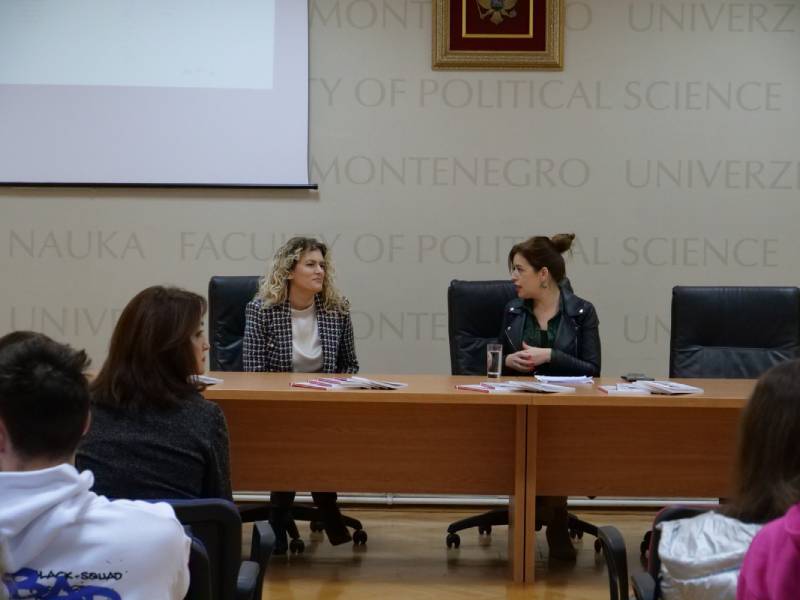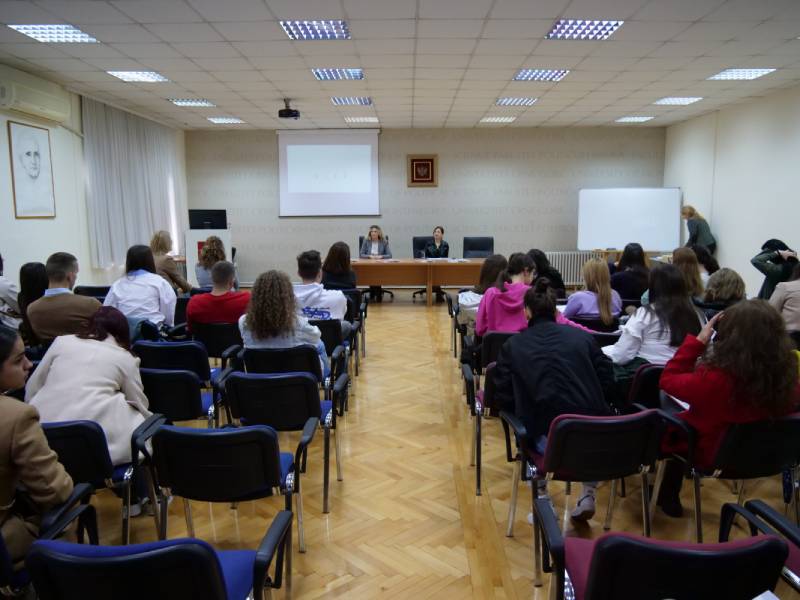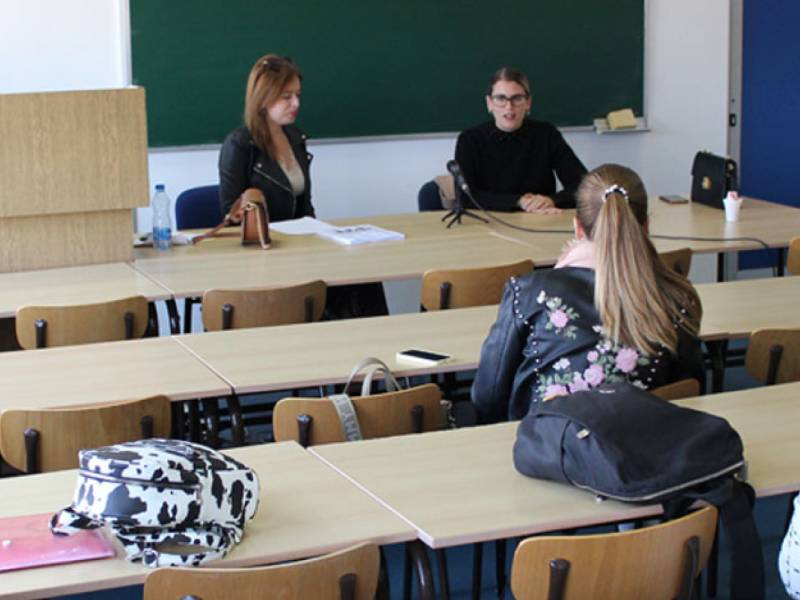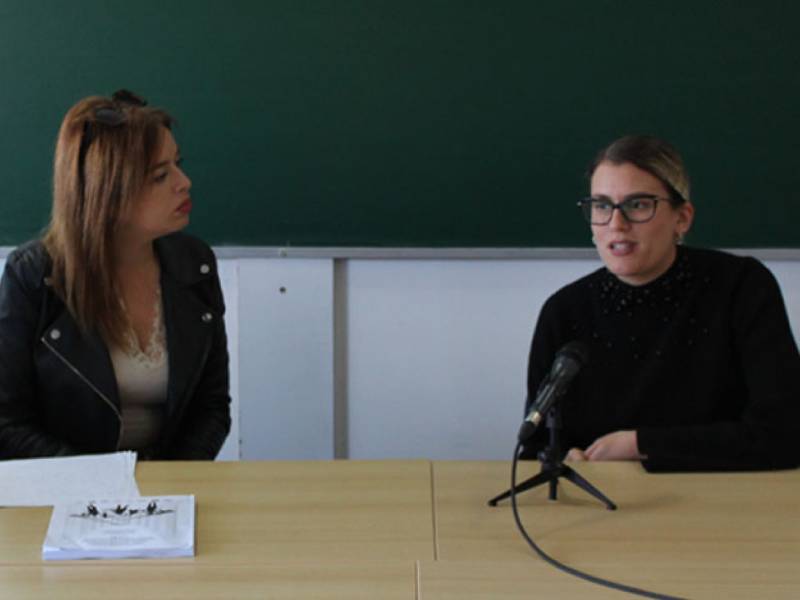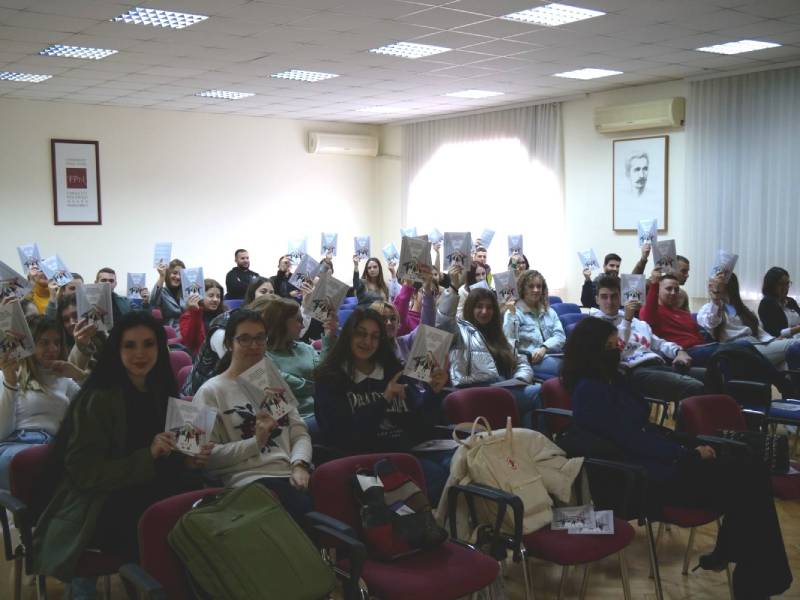The promotions of the scientific publication “The Challenges of Mainstreaming Gender Equality in University Communities: Fighting Gender-Based Violence” in which the results of the first regional research on gender-based violence in academic communities conducted as part of the UNIGEM project were presented, were held on November 10th and 21st, 2022, at the Philology faculty and at the Faculty of Political Sciences of the UCG.
At both promotions, about the publication, which was edited by professor Zilka Spahić Šiljak Ph.D., professor Jasna Kovačević Ph.D. and professor Jasmina Husanović Ph.D. spoke: Milena Aćimić-Remiković M.Sc., a teaching assistant at the Faculty of Law and Ksenija Rakočević M.Sc., a teaching assistant at the Faculty of Philology, at the University of Montenegro.
The UNIGEM project, as part of which the research was conducted, aims to develop policy and sensitize teaching staff and the student population regarding the topics of gender-based violence and sexual harassment. It includes 19 partner universities from Bosnia and Herzegovina, Montenegro, Croatia, and Serbia, where they strive to initiate institutional changes and help build an organizational culture with zero tolerance for gender-based violence. The implementer of the project is the TPO Foundation from Sarajevo, with the support of the United Kingdom Government.
At the beginning of the project, extensive quantitative and qualitative research was conducted through surveys and in-depth interviews, and the research problem was looked at with the most modern approach, from methodological, sociological, psychological, cultural, theological, social, philosophical, and other perspectives. It included 4,754 respondents, teaching and administrative staff, as well as students of various scientific fields.
During promotions at the University of Montenegro, the importance of recognizing gender-based violence and harassment in the academic community was emphasized, as well as the perception of this type of violence by academic, non-academic staff, and the student population. Also, the frameworks of legal regulations and the cultural conditioning of gender-based violence were analyzed.
The important conclusions of the research point to the fact that gender-based violence often occurs in combination with other types of violence, including mobbing, that it has a negative impact on the health, well-being, and careers of women and men, and that it is a phenomenon whose health and economic costs can be significantly reduced if prevented. Some of the key findings indicate that as many as 80% of the interviewed persons know that their colleagues have experienced sexual and gender-based violence and/or discrimination, as well as that 75.8% of teachers in the region do not know whether procedures for sanctioning perpetrators have been initiated.
We would like to thank our project partner, the University of Montenegro, for the cooperation, and especially for the mentioned promotions in the edition of the TPO Foundation.
